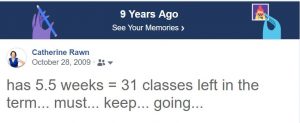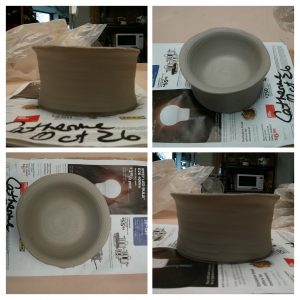Over the years, my husband and I have developed a knack for wine tasting, and particularly for enjoying BC wine. I like the challenge of confronting objective science with subjective experience, and the BC wine community is full of really great, smart people making, pouring, and drinking fabulous wines. If you want to know our faves, that’s another post entirely 😉
I’m often asked to recommend palatable but inexpensive (ideally <$15) BC wine that is available in Vancouver (ideally BC Liquor Stores). This is a tough category to crack, and for folks without wine knowledge it can be overwhelming… and the results can be rather underwhelming! So I started a basic list and informally surveyed my Facebook friends in- and adjacent to the wine community for their feedback too.
I added to the post: “For many complex reasons, often it will end up being the bigger brands or their subsidiaries, and I think that will just have to be ok. The idea is to invite people into BC wine, not to frighten or snob them out of interest (e.g., “just increase the budget” isn’t helpful here).” *Please scroll down below the list for a thoughtful response to this.
In a nutshell, if you’d like to go local, it’s tough to go cheap (again, see * below). There are many reasons for this, such as space. There are single wineries in Australia that produce as many grapes as the entire BC wine industry combined. So if you need to stick to a strict budget (I understand! I’ve been there!), I recommend buying slightly fewer bottles of slightly better wine… there’s a whole industry out there that gets a bad reputation because of the lowest end.
Here’s what came from the informal survey. What would you add? What questions do you have?
If choosing local on a strict budget, please consider:
Sperling The Market White ($16)
Hester Creek Pinot Blanc ($15.50) — or their bag-in-box series (which looks kitschy but actually is acceptable wine!)
Gehringer Brothers brand anything (these will be a bit sweeter as they’re done in a German style… but without *adding* sugar — see below)
Conviction brand (any; http://johnschreiner.blogspot.com/…/wines-of-conviction-fro…) — all seem to be $15 or less
Grey Monk L50 white ($13), Merlot ($15)
Mission Hill 5 Vineyards series ($15)
Ganton & Larson Prospect Series
If you can bump up a bit ($19-$24), try:
Arrowleaf Cellars
TIME Winery
Monster Vineyards
Please avoid these at all costs:
anything that says “Cellared in Canada” (long story)
Copper Moon
Sawmill Creek
Painted Turtle
Diabolica (there are piles of sugar added to this)
*Also consider this statement, from a friend and representative of the BC wine industry (ES):
“It’s hard not to say just bump the budget to $20 +tax because there are SO many more options at that price point and it will seriously pay off. You will be much less likely to find crazy high RS [residual sugar] in these wines, as well as way more interesting varieties, blends and styles. Remember that you’re supporting our economy when you buy B.C. and depending on which wineries you’re buying from, you’re supporting a small/family business! A lot of the wineries that can produce wine at that sub $20 price point are bigger wine corporations, so I personally think it’s easier to spend an extra $5-$7 knowing you’re getting more bang for your buck and supporting local.
There’s also something to be said for only buying at the BCL. If you go to the private stores, your selection for B.C. wines could be heavily increased (again, depending on where you go) and sometimes they are offered big discounts on already good-value wines which they then pass on to their customer. The whole supporting local, small/family business plays here too!”

 Follow
Follow

